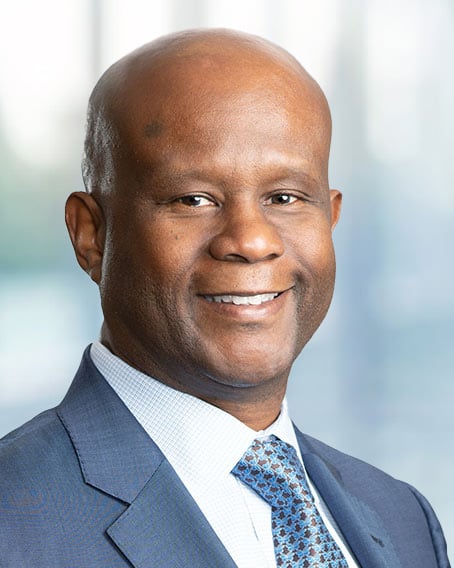On Wednesday, November 29, 2017, in remarks at the 34th International Conference on the Foreign Corrupt Practices Act (“FCPA”), Deputy Attorney General Rod J. Rosenstein announced a revised FCPA Corporate Enforcement Policy (“FCPA Policy”), to be incorporated into the Department of Justice’s (“DOJ”) United States Attorneys’ Manual. The revised FCPA Policy essentially makes permanent elements of DOJ’s FCPA Pilot Program and clarifies its approach to corporate prosecutions under the FCPA. The announced policy creates strong incentives toward self-disclosure by companies who have identified a violation of the FCPA. It explicitly commits DOJ to decline prosecution in cases where companies fully disclose, cooperate, and remediate, and reinforces DOJ’s prioritization of individual prosecutions over corporate prosecutions. Despite the new guidance from DOJ, however, difficult choices remain for companies considering self-reporting potential FCPA violations to DOJ.
Rosenstein announced that, under the FCPA Policy, when a company voluntarily self-discloses potential wrongdoing, fully cooperates, and remediates wrongdoing timely and appropriately, there is a presumption that DOJ will decline to prosecute. The presumption can only be overcome “if there are aggravating circumstances related to the nature and seriousness of the offense, or if the offender is a criminal recidivist.” The FCPA Policy also establishes that where a company self-discloses and meets the other requirements, if prosecution is compelled by aggravating circumstances, DOJ will recommend a reduction by half off the “low end” of sentencing guidelines. Finally, the FCPA Policy will include details on DOJ’s view of an “appropriate” compliance program. Rosenstein specifically mentioned “fostering a culture of compliance; dedicating sufficient resources to compliance activities; and ensuring that experienced compliance personnel have appropriate access to management and to the board” as relevant components. Going forward, all declinations will be publically disclosed, a change from past practice. Rosenstein also explicitly tied the FCPA Policy’s approach to declination and cooperation to a desire to “enhance [DOJ’s] ability to identify and punish culpable individuals.” DOJ clearly expects that increased cooperation and disclosure by potential corporate defendants will be a source of evidence making individual prosecutions easier to pursue.
But the decision to self-disclose remains a difficult and momentous choice. The Securities and Exchange Commission (“SEC”), as well as enforcement authorities in other countries--many of which have begun aggressively prosecuting international bribery cases--have not made similar firm commitments to declinations and remain focused on corporate prosecution. In an era of cross-border cooperation and information-sharing between enforcement authorities, companies should not assume that a DOJ declination means the end to their potential criminal and civil liability. In fact, such a self-report may quickly trigger investigations both in the U.S. and abroad.
Recent statements by the Co-Director of the SEC’s Enforcement Division indicate that the SEC has not emphasized individual prosecutions to the same degree as DOJ. On November 9, 2017, Co-Director Steven Peikin gave a speech at New York University School of Law about the SEC’s priorities in enforcing FCPA cases. He noted that since 2010, the SEC has brought FCPA actions against 101 entities and 38 individuals. He also described the “particular challenges” of individual prosecutions in the FCPA context, noting that they were not always possible. Peikin did assert the importance of individual prosecution, but described it as a tool to drive corporate compliance rather than the primary method of deterring violations of the FCPA. Likewise, Peikin made no statements about the effects of self-disclosure and cooperation. And recent cases, including situations in which the DOJ has declined prosecution under the Pilot Program, demonstrate that the SEC does not view a DOJ declination as a bar to its own enforcement action.
That concern also applies to the decisions of foreign regulators. With cooperation between U.S. authorities and those in other countries increasingly a feature of FCPA enforcement actions, self-disclosure to DOJ may result in sharing of disclosed information with foreign regulators who are not bound by any DOJ policy or declination decision.
Ultimately, Mr. Rosenstein’s FCPA Policy announcement helps to clarify decision-making for companies facing liability under the FCPA. The DOJ’s FCPA Policy clearly sets out and formalizes the obligations a company must meet to avoid DOJ prosecution. But at the same time, companies must remain aware that they may still pay a steep price for a self-disclosure, even if they receive a declination from DOJ. If you wish to discuss the issues raised in this Alert, including the factors impacting the corporate self-disclosure decision, please contact the Ropes & Gray attorney who usually advises you.
Authors

Stay Up To Date with Ropes & Gray
Ropes & Gray attorneys provide timely analysis on legal developments, court decisions and changes in legislation and regulations.
Stay in the loop with all things Ropes & Gray, and find out more about our people, culture, initiatives and everything that’s happening.
We regularly notify our clients and contacts of significant legal developments, news, webinars and teleconferences that affect their industries.




